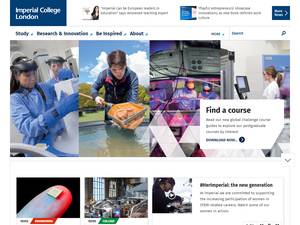Swansea University Research Excellence Scholarships (SURES)
Swansea University is proud to offer 15 fully-funded PhD scholarships for students commencing study in October 2018 or January 2019.
The scholarships will be awarded on the basis of student excellence across a portfolio of 34 potential projects.
Project details:
2D Ruddlesden–Popper perovskites have recently emerged as promising candidates for hybrid perovskite photovoltaic cells, realizing power-conversion efficiencies of over 14% with improved stability over their 3D counterparts. Indeed, it is their stability that gives them commercial promise. Recently 2D/3D (HOOC(CH2)4NH3)2PbI4/CH3NH3PbI3 perovskites solar modules have achieved > 10’000 hours stability, a remarkable feet, given the inherent instability of 3D perovskites such as CH3NH3PbI3.
This exciting project will combine physics, chemistry and materials science to synthesise materials, fabricate solar cell test devices using solution processing techniques, and to characterise the devices with state-of-art instrumentation. Materials characterisation techniques such as XRD, XPS, TEM and FEG-SEM will be available to the researcher. Charge carrier dynamics and interfacial charge transfer processes will be measured with techniques such as time-resolved photovoltage and photocurrent transients, CELIV, impedance spectroscopy and IMVS, at a range of temperatures down to 77K.
The ultimate questions to be answered will be:
What makes these perovskites so stable?What is limiting their performance compared to their 3D analogues?How can use our knowledge of the device physics, chemistry and materials processing to improve their overall performance?
The project is based Swansea University’s new Bay Campus within the SPECIFIC Innovation and Knowledge Centre, with strong collaborations including University of Oxford and Imperial College London. The SPECIFIC Research Centre seeks to identify technologies emerging from laboratories and assess their suitability to scale up in the area of building integrated functional coatings that generate, store or release energy. The research student will also have the opportunity to work alongside colleagues in the Physics Department (supervised by Professor Paul Meredith Sêr Cymru II Chair) who operate state-of-the-art photophysical and optical characterization instrumentation.
2D Ruddlesden–Popper perovskites have recently emerged as promising candidates for hybrid perovskite photovoltaic cells, realizing power-conversion efficiencies of over 14% with improved stability over their 3D counterparts. Indeed, it is their stability that gives them commercial promise. Recently 2D/3D (HOOC(CH2)4NH3)2PbI4/CH3NH3PbI3 perovskites solar modules have achieved > 10’000 hours stability, a remarkable feet, given the inherent instability of 3D perovskites such as CH3NH3PbI3.
This exciting project will combine physics, chemistry and materials science to synthesise materials, fabricate solar cell test devices using solution processing techniques, and to characterise the devices with state-of-art instrumentation. Materials characterisation techniques such as XRD, XPS, TEM and FEG-SEM will be available to the researcher. Charge carrier dynamics and interfacial charge transfer processes will be measured with techniques such as time-resolved photovoltage and photocurrent transients, CELIV, impedance spectroscopy and IMVS, at a range of temperatures down to 77K.
The ultimate questions to be answered will be:
What makes these perovskites so stable?What is limiting their performance compared to their 3D analogues?How can use our knowledge of the device physics, chemistry and materials processing to improve their overall performance?
The project is based Swansea University’s new Bay Campus within the SPECIFIC Innovation and Knowledge Centre, with strong collaborations including University of Oxford and Imperial College London. The SPECIFIC Research Centre seeks to identify technologies emerging from laboratories and assess their suitability to scale up in the area of building integrated functional coatings that generate, store or release energy. The research student will also have the opportunity to work alongside colleagues in the Physics Department (supervised by Professor Paul Meredith Sêr Cymru II Chair) who operate state-of-the-art photophysical and optical characterization instrumentation.
The successful applicant will have access to our Postgraduate Research Student Training programmes.


 Established in 1907, Imperial College London is a non-profit public higher education institution located in the urban setting of the metropolis of London (population range of over 5,000,000 inhabitants). Officially accredited and/or recognized by the Privy Council, Imperial College London is a large (uniRank enrollment range: 15,000-19,999 students) coeducational higher education institution. Imperial College London offers courses and programs leading to officially recognized higher education degrees such as bachelor degrees in several areas of study. See the uniRank degree levels and areas of study matrix below for further details. International applicants are eligible to apply for enrollment.
Established in 1907, Imperial College London is a non-profit public higher education institution located in the urban setting of the metropolis of London (population range of over 5,000,000 inhabitants). Officially accredited and/or recognized by the Privy Council, Imperial College London is a large (uniRank enrollment range: 15,000-19,999 students) coeducational higher education institution. Imperial College London offers courses and programs leading to officially recognized higher education degrees such as bachelor degrees in several areas of study. See the uniRank degree levels and areas of study matrix below for further details. International applicants are eligible to apply for enrollment.